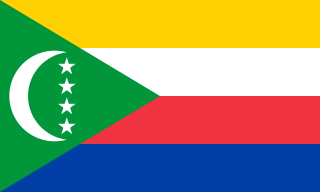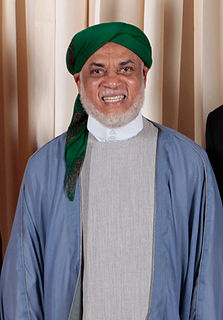The history of the Comoros goes back some 1,500 years. The Comoros have been inhabited by various groups throughout this time. France colonised the islands in the 19th century, and they became independent in 1975.

Politics of the Union of the Comoros takes place in a framework of a federal presidential republic, whereby the President of the Comoros is both head of state and head of government, and of a multi-party system. Executive power is exercised by the government. Federal legislative power is vested in both the government and parliament.
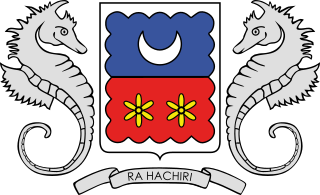
The politics of Mayotte takes place in a framework of a French overseas region and department, until 2011 an overseas collectivity. Local politics takes place in a parliamentary representative democratic setting whereby the President of the General Council is the head of government, of a multi-party system. Executive power is exercised by the government. The status of Mayotte changed in 2001 towards one very close to the status of the départements of mainland France, with the particular designation of collectivité départementale, although the island is still claimed by the Comoros. This change was approved by 73% at a referendum on Mayotte. After the constitutional reform of 2003 it became a collectivité d'outre-mer while keeping the title collectivité départementale de Mayotte. Mayotte became an overseas department of France on 31 March 2011 following the result of the March 2009 Mahoran status referendum, which was overwhelmingly approved by around 95% of voters.

Anjouan is an autonomous high island in the Indian Ocean that forms part of the Union of the Comoros. Its chief town is Mutsamudu and, as of 2006, its population is around 277,500. The total area of the island is 424 square kilometers.

The current Constitution of France was adopted on 4 October 1958. It is typically called the Constitution of the Fifth Republic, and replaced that of the Fourth Republic dating from 1946. Charles de Gaulle was the main driving force in introducing the new constitution and inaugurating the Fifth Republic, while the text was drafted by Michel Debré. Since then the constitution has been amended twenty-four times, most recently in 2008.

Elections in the Comoros take place within the framework of a multi-party democracy and a presidential system. The President and the majority of the seats in the Assembly of the Union are directly elected.

The Congress of the Republic of Peru is the unicameral body that assumes legislative power in Peru. The congress consists of 130 members (congresistas), who are elected for five-year periods in office on a proportional representation basis.

An Algerian Constitution was first adopted by a referendum in 1963, following the Algerian War of Independence (1954–62); originally, it was to be drafted by a constitutional assembly led by Ferhat Abbas, but this body was sidelined by Algeria's first President, Ahmed Ben Bella. In its 1963 form, the constitution declared Algeria a one-party state ruled by the former resistance movement, the National Liberation Front (FLN). This constitution was suspended by the military coup d'état of 1965. After years of ruling by executive fiat as leader of the Revolutionary Council, Houari Boumédienne issued a second constitution in 1976, emphasizing the importance of socialism and - formally - restoring political institutions to their primacy over the military establishment.
The Comorian Union for Progress is a political party in the Comoros.
The Comoros is an island nation in the Indian Ocean, located off the eastern coast of Africa. France first established colonial rule in the Comoros in 1841. Agreement was reached with France in 1973 for the Comoros to become independent in 1978. On July 6, 1975, but the Comorian parliament passed a unilateral resolution declaring independence. The deputies of Mayotte, which remained under French control, abstained. Referendums on all four of the islands excluding Mayotte showed strong support for independence. Ahmed Abdallah proclaimed the Comoros' independence on September 5, 1975 and became its first president.
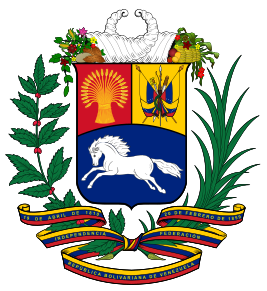
The 2009 referendum was a vote in which the citizens of Venezuela approved Amendment No. 1 of the Constitution of Venezuela; this abolished term limits for the offices of President, state governors, mayors and National Assembly deputies.
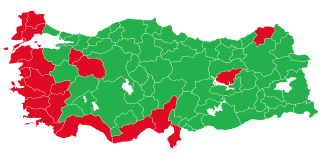
A constitutional referendum on a number of changes to the constitution was held in Turkey on 12 September 2010. The results showed the majority supported the constitutional amendments, with 58% in favour and 42% against. The changes were aimed at bringing the constitution into compliance with European Union standards. Supporters of Turkish EU membership hope constitutional reform will facilitate the membership process.

A constitutional referendum was held in the Comoros on 5 November 1989. The proposed amendments to the constitution would allow incumbent President Ahmed Abdallah to run for a third term, as well as creating the post of Prime Minister. The changes were approved by 92.5% of voters.

A constitutional referendum was held in the Comoros on 20 October 1996. The proposed amendments would set the presidential term at 6 years, create a unicameral parliament, and limit the authority of the individual islands' parliaments. The proposals were approved by 85% of voters, with a turnout of around 64%.

A constitutional referendum was held in the Comoros on 23 December 2001. The proposed amendments to the constitution were approved by 77% of voters, with a turnout of 75.4%.

A constitutional referendum was held in Peru on 18 June 1939. The proposed changes were approved by 88% of voters. Following the referendum, Manuel Prado Ugarteche was elected President on 4 December.

A two-part constitutional referendum was held in Mauritania on 5 August 2017, having initially been planned for 15 July. Voters were asked whether they approve of proposed amendments to the constitution. Both proposals were approved by 86% of voters with a voter turnout of 54%.

A constitutional referendum was held in the Comoros on 30 July 2018. The constitutional amendments proposed would remove the presidential term limits and requirement for the presidency to rotate between the three main islands. Following the approval of the amendments by 92% of voters, President Azali Assoumani will be allowed to run for another five-year term in a vote moved forward to 2019 instead of 2021.

Early presidential elections will be held in the Comoros on 24 March 2019 alongside regional elections. If required, a second round will be held on 21 April.

